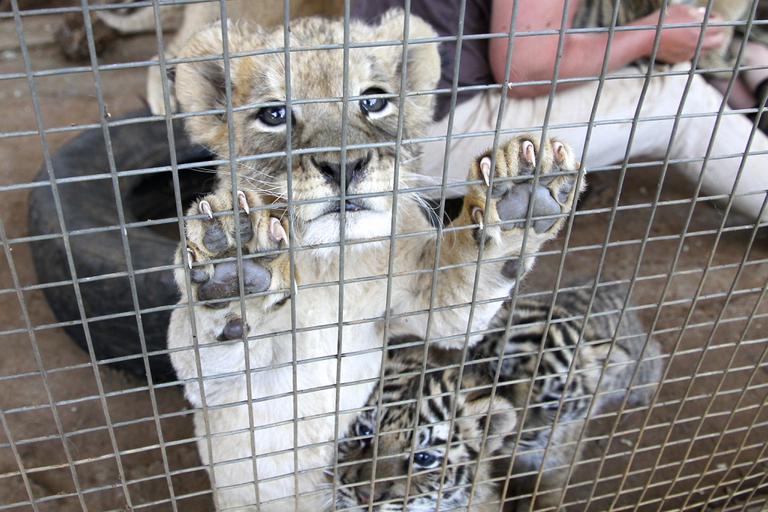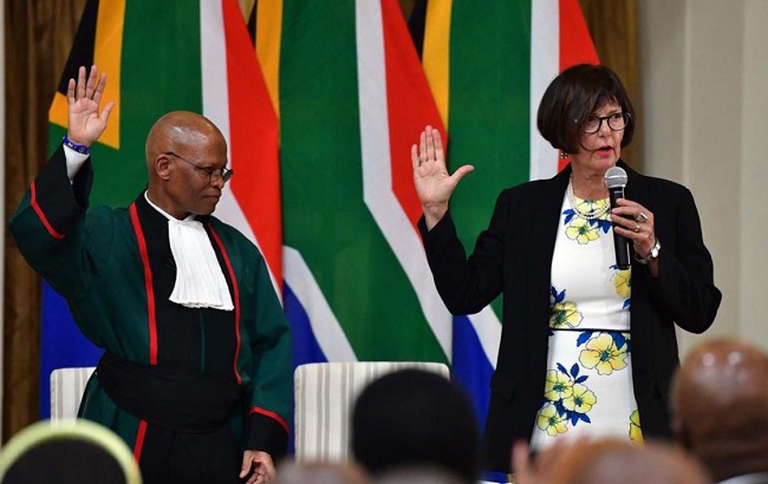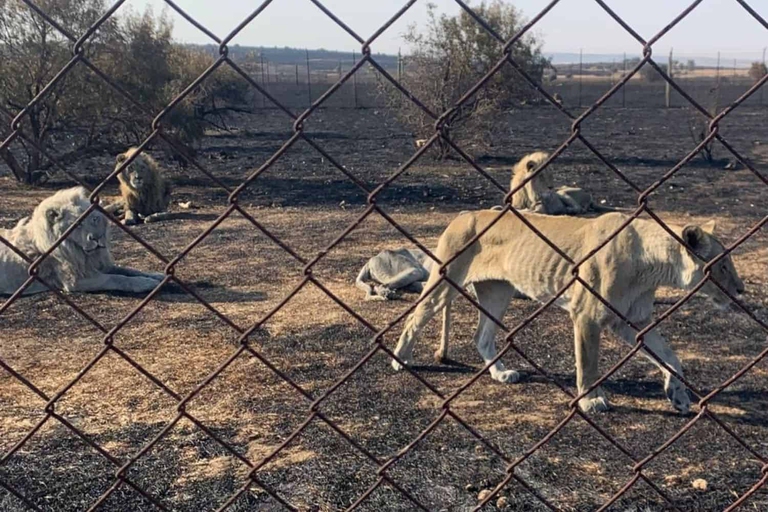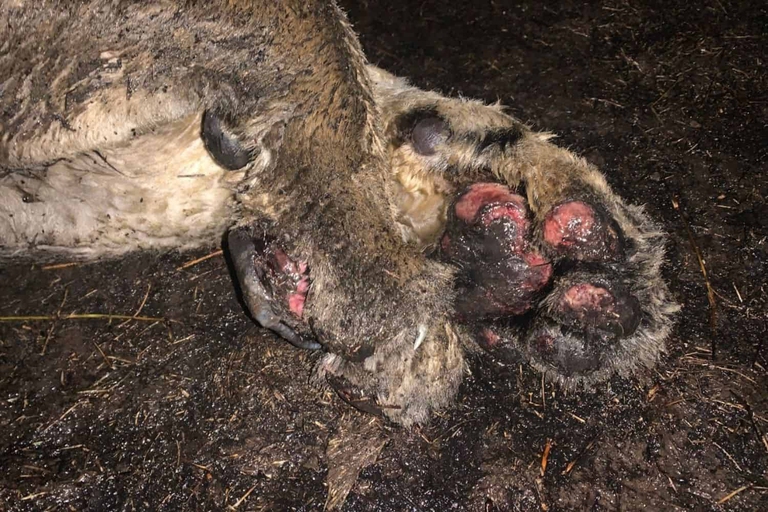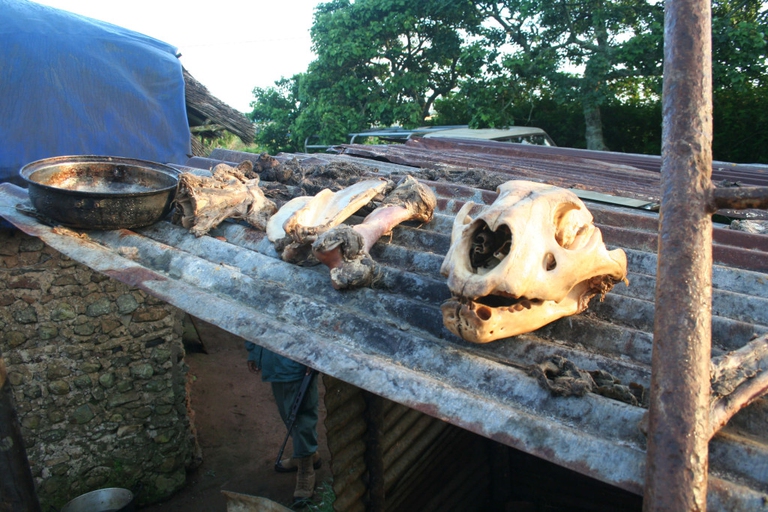
Canada’s wildfire season this year is impacting air quality way beyond the borders of the North American state, reaching as far as Europe.
The South African government is clamping down on the controversial multimillion-dollar lion-breeding industry, thanks to pressure from activists.
Warning: the below article contains images that some readers may find disturbing.
The South African government has announced that it will end the highly exploitative and cruel lion breeding and canned hunting industry, which rose to prominence in the 1990s. In the last few decades, the industry in question has expanded and remained unregulated. But unfortunately, despite the government moving to put to an end lion breeding practices, some commercial animal breeders have refused to comply with the government directive and have continued breeding captive lions for hunting and bone harvesting.
Animal rights activists have described the breeding of captive lions and bone harvesting as ‘barbaric’, adding that a true sanctuary does not breed animals or allow public contact with animals, and cares for the animals for the rest of their lives.
A High-Level Panel appointed to review South Africa’s policies, legislation, and practices regarding lions, elephants, leopards and rhinoceroses has recommended an end to the practice of captive breeding and hunting of animals. “Our country will no longer breed captive lions, keep lions in captivity, or use captive lions or their derivatives commercially. I am instructing the Forestry, Fisheries and the Environment (FFE) department to put processes in place to halt the sale of captive lions, including the appropriate disposal of existing lion bone stockpiles and lion bone, hunting of captive bred lions, tourist petting interactions including so-called voluntourism, and cub petting, among others,” said Barbara Creecy, Minister of Forestry, Fisheries and the Environment.
In addition, Creecy recently announced that her department was looking for an exit strategy advisory panel that would help to identify voluntary exit options for lion breeders. Although the Minister’s voluntary exit strategy is meant to offer captive lion breeders a path to leave the business, setting up a task force responsible for finding potential funders to support the exits from the industry. But pundits have criticized Creecy’s “win-win exit plan” saying the minister was not bold enough and that the plan may cause the situation to take a turn for the worst.
“Our research has revealed that more than 275 captive predator facilities were issued with Threatened Or Protected Species (TOPS) captivity permits by their respective provincial authorities to keep at least 5,508 lions, 496 cheetahs, 198 leopards, 382 tigers, and 804 other felids in South Africa between 2017 and 2020. Sadly, this is likely to be a modest representation of the industry due to incomplete data sets provided by the provincial authorities and refusals or ignored requests and a lack of a standardised licencing system that allows for more thorough and accurate monitoring of numbers,” said Blood Lions Campaigner Cath Jakins in an interview with LifeGate.
“Policy reform and lobbying remain among our main objectives to achieve lasting legislative change within our country’s commercial captive predator breeding keeping industry. We have welcomed the Forestry, Fisheries and Environment department’s promises to shut down the captive lion industry. Unfortunately, the wheels of government have been slow and thus a fine balance between support and pressure has been our approach to enable the government to fulfil their intentions of adopting the High-Level Panel (HLP) majority recommendations for African lions,” Jakins continued.
At a private lion breeding farm located 310 kilometres away from the capital Johannesburg, 30 lions were burnt after wildfires hit the facility. According to media reports, the owner apparently deliberately left the lions to die, and when he was asked for a comment on the farm’s negligence in their death, shockingly he laughed and downplayed the situation.
However, preliminary investigations conducted by Bloemfontein SPCA, a registered non-profit organisation, have revealed that the farm owner was no longer spending money on feeding the lions and that if any cattle or wildlife died in the area, farmworkers would collect their bodies as food for the lions. They would also get dead chickens from a nearby poultry farm.
“What we found shocked us to the bone. As we entered the lion camps, we could only see the destruction left behind by the torturing flames. We arrived at the lion enclosures and our hearts broke and our souls wept. We saw that the lions couldn’t escape the blazing fires and the inhalation of smothering fumes was evident. The lions didn’t move. They all lay in one spot with their paws turned upward. Their fragile bodies were burnt, and their faces carried the devastating scars of the flames just days ago. Three male lions, supposed to be kings of the jungle, in one of the camps, couldn’t stand at all. As they attempted to get up, they simply collapsed over and over. One cannot begin to comprehend the pain these lions were in,” Bloemfontein SPCA revealed.
The Organized Crime and Corruption Reporting Project (OCCRP) is a global network of investigative journalists that have tracked the illegal lion bone supply chain for years from the horrors of the captive breeding facilities and cages to the notorious criminals in Asia who profit from the illegal trade. The OCCRP has found that most exported bones are diverted in transit and bought off by shell companies connected to the alleged Laotian kingpin of the Xaysavang, a notorious wildlife trafficking organisation, who is on the FBI’s most wanted list. The US Bureau has promised a $1 million reward for information that could bring down the Xaysavang.
Animal rights activists say the lion bone exports remain highly disputed even among South African government agencies. Recently, the environment ministry revealed that lion bone exports were considered to be illegal. But surprisingly, the South African Revenue Service, which oversees the country’s customs, said it had never been notified by the ministry that lion bone exports were illegal adding that customs officers were not monitoring bone exports, other than making sure that each shipment had the correct export permit.
Perhaps one major question that needs to be answered is: If there is no conservation value in the captive breeding and keeping of predators, why is the captive population so substantial?
Siamo anche su WhatsApp. Segui il canale ufficiale LifeGate per restare aggiornata, aggiornato sulle ultime notizie e sulle nostre attività.
![]()
Quest'opera è distribuita con Licenza Creative Commons Attribuzione - Non commerciale - Non opere derivate 4.0 Internazionale.
Canada’s wildfire season this year is impacting air quality way beyond the borders of the North American state, reaching as far as Europe.
Two new studies have revealed that the retreat of the Thwaites Glacier is happening in a different, more complex way than previously understood.
A study of tissue samples from killer whales in Canada was the first to find a dangerous toxic chemical, known as 4NP, in the animals’ flesh.
Switzerland’s glaciers are shrinking, with a new study finding that they have lost more than half their total volume since the early 1930s.
Santa Olalla, the last permanent lagoon in the park, has disappeared under the pressure of drought, overexploitation, and illegal wells.
Vulture populations in southern Asia experienced a 99% collapse and for a long time nobody knew why. Then, a historic discovery saved them.
The Indian government has pledged to reintroduce cheetahs, classified as a “vulnerable” species by the IUCN, into the wild. The animals will be transferred from Africa.
In Australia, more and more platypuses are getting caught in plastic waste. Efforts to protect this species need to be increased.
Six years ago, Indonesia was shrouded in smoke from ravaging wildfires. Today, it is cited as a successful case in the fight against deforestation. Yet the balance remains delicate.
